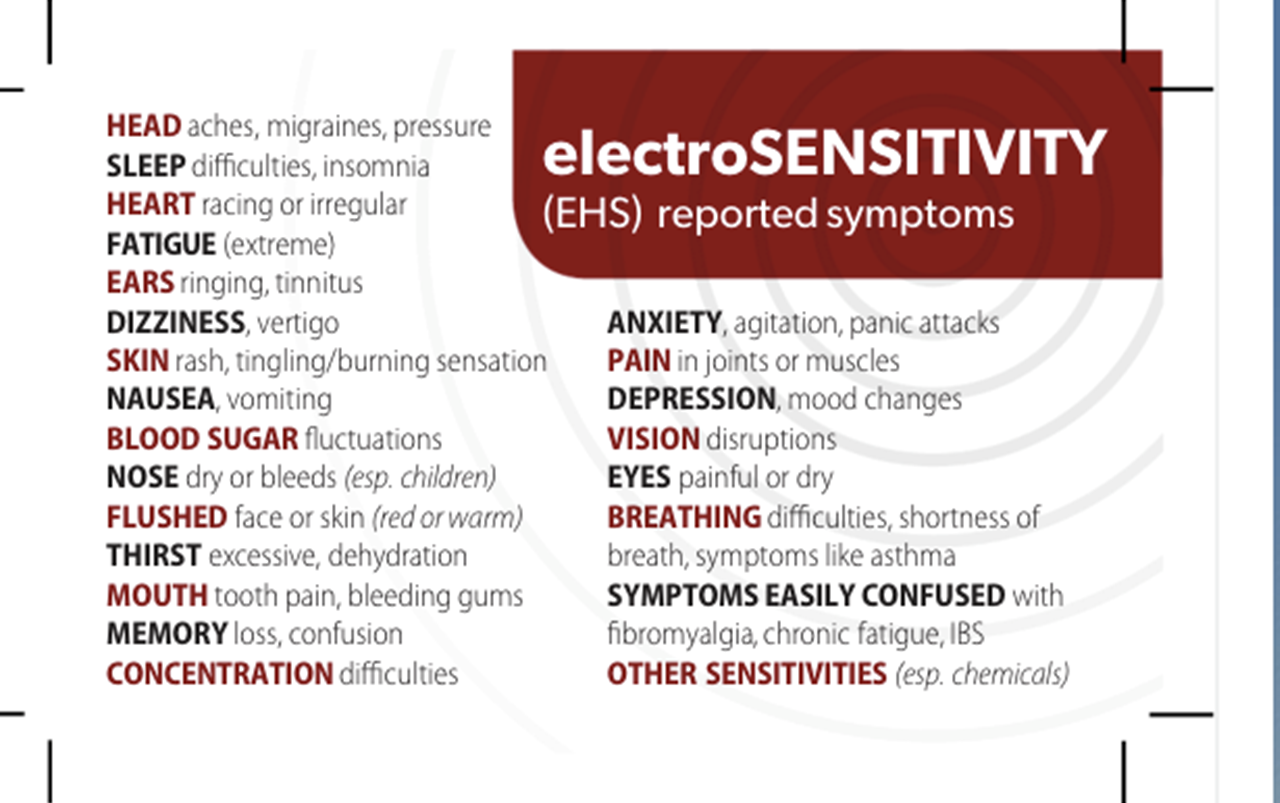Info about Electromagnetic Field Sensitivity

Electromagnetic field sensitivity (EMF sensitivity) is a condition where an individual has a high sensitization to electromagnetic fields around him. It is not restricted to situations where there is no electrical current, but it can be a problem for people with an open circuit or are exposed to electromagnetic fields for prolonged durations of time. The Environmental Health Center in Dallas is well-versed in the reasons behind EMF sensitivities, and can help patients treat the symptoms. The center is able to conduct tests to determine whether the patient is susceptible to EMF exposure. This is possible using the latest technology to measure heart rate variability.
https://crimehand3.doodlekit.com/blog/entry/25076447/info-about-electromagnetic-field-sensitivity -EMF sensitivities are a sign of emf exposure
Electromagnetic pollution and the generated electromagnetic fields have been linked to the onset of a number of illnesses. emf sensitivity symptoms are usually difficult to detect and some individuals have reported a wide variety of symptoms. It could be because of a pre-existing condition or an ailment due to the possibility of exposure to large amounts of electromagnetic fields. Whatever the reason the symptoms can be debilitating for individuals who experience them. However, the scientific community is not certain of the extent to which the IEI EMF sensitivity syndrome and how widespread it is.
It is not a symptom of electrohypersensitivity
While the symptoms of electrohypersensitivity and EMF sensitivity are similar, there are some key differences. Electromagnetic hypersensitivity is frequently misunderstood and symptoms can differ widely. It is important to get a proper diagnosis to understand the underlying causes and possibilities for treatment.
It is not a symptom of EHS
While EMF sensitivities are not an underlying characteristic of EHS but it is commonly related to the disorder. In electromagnetic hypersensitivity syndrome , some studies have suggested that the disorder is linked to environmental and genetic factors rather than a particular physical issue. Despite this the need for more research to draw definitive conclusions.
It can be confusing
The signs of EMF sensitivities can be confusing. Most EHS sufferers do not believe that their symptoms are due to any specific cause. They seek medical treatment, but are unable to get a definitive diagnosis. This raises suspicions that they might have an underlying mental disorder, and leads to an increasing feeling of despair and anxiety.
It can be scary
EMFs, also known as electromagnetic fields also known as EMFs, can be terrifying. Some people report experiencing unpleasant symptoms when they are exposed to these electromagnetic fields, which are generated by devices like Wi-Fi routers and mobile phones. The symptoms may vary in severity, however in severe cases, people are forced to stay away from the use of fluorescent lighting and electronic devices. In extreme cases, people might be forced to withdraw from modern society altogether and be isolated in communities that are known by the name of "EMF-free zones".

It may aid in melatonin production
One of the most significant hormones found in our bodies, melatonin, is synthesized in the pineal gland. It is implicated in many physiological functions, including circadian rhythm regulation. However, its role as a protective factor from non-ionizing fields of electromagnetic radiation has been challenged mostly due to the inconsistencies between studies. To date, our understanding of this hormone's protection mechanisms is largely based upon our knowledge of the mechanism by which it works to protect the body against the oxidative stress induced by RF/ELF exposure.
It may aid in autonomic nervous system changes
A number of studies demonstrate that EMF sensitiveness can affect your autonomic nervous. Patients with the condition can be affected by altered autonomic reactions and experience digestive issues. There are some patients who have trouble digesting food properly , or be ill after eating a small amount. Some may notice changes in body temperature or have heat intolerance. These issues are typically due to other health issues, such as diabetes.
